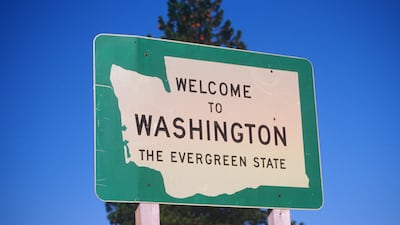The Modernization of Cosmetics Regulations Act enacted in late 2022 dramatically changed how cosmetic products are regulated in the US, while preserving state and local governments’ right to crack down on cosmetic ingredients deemed unsafe.

Washington State Continues Taking Cues From California; Toxic-Free Cosmetics Act Is Back
Washington State’s Toxic-Free Cosmetics Act would ban use of any and all PFAS, matching work California started in 2020 and finished with legislation enacted last year. It also would blacklist ortho-phthalates, formaldehyde, methylene glycol and any other chemical determined by the department to release formaldehyde, among other deemed hazardous substances.

More from Legislation
The Washington State Department of Ecology publishes ‘Interim Policy on Lead in Cosmetics’ which provides safe harbor options for cosmetic products struggling with the 1ppm limit under the state’s Toxic Free Cosmetics Act, while the department gathers information under a newly opened rulemaking to ‘identify a feasible approach to regulating lead in cosmetic products.’
The Washington Department of Ecology hasn’t backed down on its targeting of formaldehyde-releasing preservatives under the state’s Toxic-Free Cosmetics Act, as industry still awaits a draft final rule. In a recent webinar, attorney Angela Deisch of Amin Wasserman Gurnani, LLP said the department has also not provided clarity on penalties under the law, which goes into effect 1 January.
The FDA's current leader, whose term will end with Donald Trump’s second inauguration, also described three qualities the agency’s next commissioner will need to succeed, including "believing that there is such a thing as expertise."
Whether Democrat Harris or Republican Trump is in White House or which party has majority in either chamber of Congress, the FDA’s conundrum will continue around a regulatory pathway for allowing use of ingredients derived from hemp in supplements.
More from Policy & Regulation
The Biden Administration’s final unified agenda sets target dates for three notices of proposed rulemakings under MoCRA, setting a proposal for cosmetic GMPs for October 2025.
FDA publishes an updated registration guidance in the Federal Register 12 December to answer outstanding questions by stakeholders, including whether a single FEI number can be used for multiple related facilities.
Guest authors Marcha Isabelle Chaudry, an attorney and founder of the Equity and Wellness Collaborative, and Rachel Raphael, partner at Morgan, Lewis & Bockius, LLP, write about the risks companies face in making claims in the realm of ‘green’ beauty, where an absence of a universal standard or definition for ‘green’ is creating confusion and in some cases, legal headaches.






